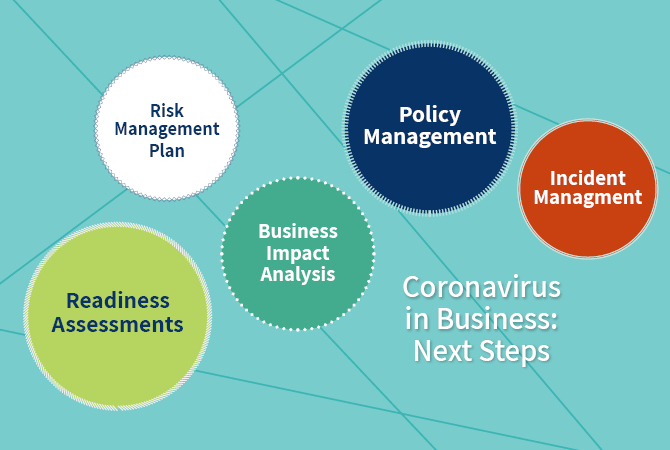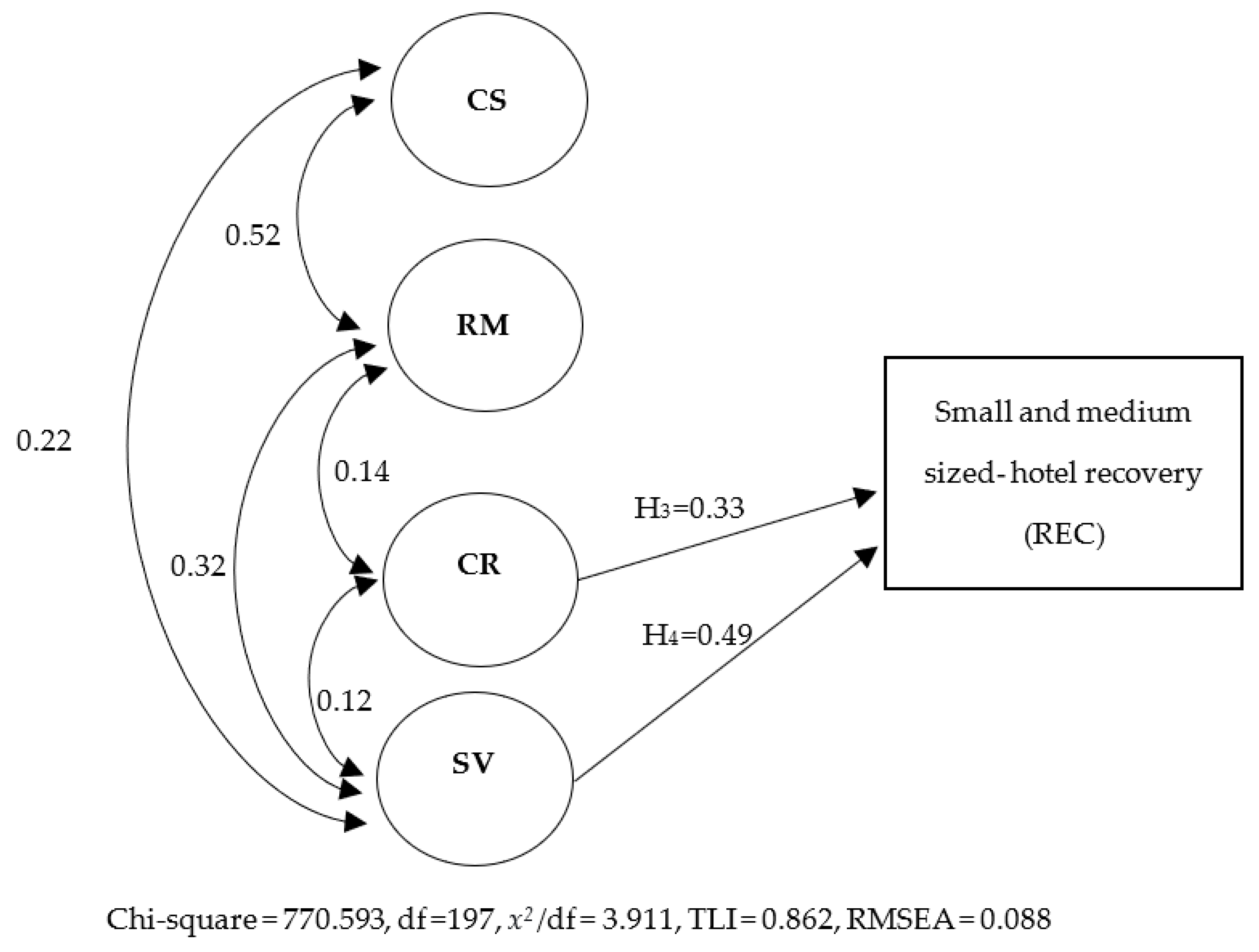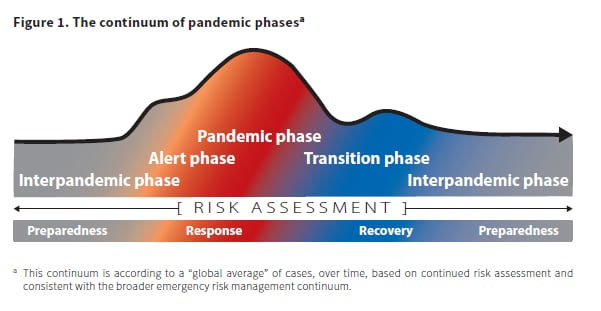Pandemic Risk Management: Strategies for Resilient Business Operations

Pandemic Risk Management: Strategies for Resilient Business Operations
The ongoing global pandemic has underscored the critical importance of effective risk management strategies for businesses. As organizations navigate unprecedented challenges, a robust pandemic risk management plan becomes indispensable.
Understanding the Pandemic Landscape
In crafting an effective pandemic risk management strategy, the first step is gaining a comprehensive understanding of the current landscape. This involves staying informed about the latest developments, monitoring health guidelines, and assessing the specific risks that the organization faces.
Implementing Safety Protocols
One of the primary components of a robust pandemic risk management plan is the implementation of stringent safety protocols. This includes measures such as regular sanitization, social distancing, and providing personal protective equipment (PPE) to employees. These actions not only safeguard the workforce but also contribute to the overall resilience of the business.
Prioritizing Employee Health and Well-being
A key aspect of pandemic risk management is prioritizing the health and well-being of employees. This involves not only physical health but also addressing mental health challenges that may arise during these challenging times. Offering support services and fostering a culture of open communication can significantly contribute to employee well-being.
Developing Emergency Response Plans
To effectively manage pandemic-related risks, organizations must have well-defined emergency response plans in place. These plans should outline specific steps to be taken in the event of an outbreak within the workforce or the community, ensuring a swift and coordinated response.
Implementing Remote Work Solutions
The rise of remote work has become a pivotal element in pandemic risk management. Establishing reliable remote work solutions allows business operations to continue seamlessly while minimizing the risk of virus transmission among employees.
Ensuring Compliance with Health Guidelines
Adherence to health guidelines and regulations is non-negotiable in pandemic risk management. Organizations must stay vigilant and adapt their policies and practices in accordance with evolving guidelines to maintain a safe and compliant work environment.
Collaborating with Health Authorities
Building strong partnerships with health authorities and experts is crucial. Regular consultations with relevant health agencies can provide valuable insights and ensure that the organization’s risk management strategies align with the latest scientific and medical recommendations.
Investing in Training and Awareness Programs
Education is a powerful tool in pandemic risk management. Investing in training programs that educate employees about health protocols, safety measures, and the importance of adherence can significantly enhance the effectiveness of risk management efforts.
Monitoring and Adjusting Strategies
Pandemic risk management is an ongoing process that requires continuous monitoring and adjustment. Regularly assessing the effectiveness of implemented strategies, gathering feedback from employees, and staying abreast of emerging developments are essential for refining and improving the overall approach.
In conclusion, navigating the complexities of a pandemic requires a multifaceted and adaptive approach to risk management. By prioritizing employee well-being, implementing safety measures, and staying informed, organizations can build resilience and ensure the continuity of their operations in the face of unprecedented challenges.
For further insights into effective pandemic risk management, visit The Healthy Consumer website. Stay informed, stay safe.
Navigating Crisis: Pandemic Management Strategies

Strategies for Navigating Crisis: Pandemic Management Unveiled
The global pandemic has tested the resilience of individuals, communities, and organizations. In this article, we delve into effective crisis management strategies amidst the ongoing pandemic, exploring key principles to guide us through these challenging times.
Understanding the Nature of the Crisis: A Foundation for Action
Effective crisis management begins with a clear understanding of the nature of the crisis. In the case of a pandemic, comprehending the virus’s characteristics, transmission methods, and potential impacts is crucial. This knowledge forms the foundation for informed decision-making and proactive responses.
Establishing a Crisis Management Team: Coordinated Leadership
Central to navigating a crisis is the formation of a dedicated crisis management team. This team, comprised of individuals with diverse expertise, ensures a comprehensive approach to addressing challenges. Coordinated leadership, quick decision-making, and clear communication are hallmarks of an effective crisis management team.
Communication is Key: Transparent and Timely Information
Transparent and timely communication is paramount during a crisis. Keeping stakeholders informed fosters trust and helps manage anxiety. Regular updates on the situation, preventive measures, and response efforts are essential. Utilizing various communication channels ensures information reaches a broad audience.
Implementing Preventive Measures: Proactive Risk Mitigation
Proactive measures play a vital role in crisis management. Implementing preventive measures, such as social distancing, hygiene protocols, and travel restrictions during a pandemic, helps mitigate the risk of spreading the virus. A comprehensive strategy that prioritizes public health is fundamental to crisis containment.
Adapting Business Continuity Plans: Ensuring Operational Resilience
Organizations must adapt their business continuity plans to navigate the challenges posed by a pandemic. This involves identifying critical functions, establishing remote work capabilities, and securing supply chains. Flexibility and adaptability are key elements in ensuring operational resilience during times of crisis.
Crisis Response and Resource Allocation: Agility in Action
The ability to respond swiftly and allocate resources effectively is a defining aspect of crisis management. This agility requires a dynamic response plan that can be adjusted based on evolving circumstances. Allocating resources strategically ensures that essential needs are met and crisis impacts are minimized.
Fostering a Resilient Organizational Culture: Employee Support
Maintaining a resilient organizational culture is essential during a crisis. Prioritizing employee well-being, offering support services, and fostering a sense of community contribute to a resilient workforce. Investing in employee mental health programs helps mitigate the emotional toll of the crisis.
Learning from the Crisis: Post-Crisis Analysis and Adaptation
Post-crisis analysis is a critical component of effective crisis management. Conducting a thorough review of actions taken, identifying areas for improvement, and incorporating lessons learned into future crisis plans enhances an organization’s overall resilience. Continuous adaptation is key in an ever-changing landscape.
Global Collaboration for Pandemic Management: Uniting Against a Common Foe
The interconnected nature of a pandemic necessitates global collaboration. Sharing information, resources, and best practices on an international scale enhances collective efforts. Collaborative initiatives, such as vaccine distribution programs and research partnerships, showcase the power of united action against a common foe.
In the midst of navigating these crisis management strategies, individuals and organizations can find additional insights and support through resources such as Crisis Management Pandemic. This centralized hub offers guidance on crisis response, risk mitigation, and fostering resilience in the face of ongoing challenges.
Mitigating Global Risks: Strategies for Pandemic Preparedness

Strategies for Comprehensive Global Pandemic Risk Mitigation
The complexity of global pandemics necessitates proactive and comprehensive risk mitigation strategies. In this article, we explore key approaches to mitigate the risks associated with pandemics on a global scale, fostering resilience and preparedness.
Understanding the Global Nature of Pandemic Risks
Pandemics pose unique challenges due to their global nature. This section delves into the characteristics that make pandemics different from localized crises, emphasizing the need for a coordinated and global approach to effectively mitigate the associated risks.
Early Warning Systems and Surveillance
One of the pillars of global pandemic risk mitigation is the establishment of robust early warning systems. This part of the article discusses the importance of surveillance mechanisms, data analytics, and international cooperation in detecting and responding to potential pandemic threats at an early stage.
International Collaboration and Information Sharing
Mitigating global pandemic risks requires collaboration across borders. This section explores the significance of international cooperation and information sharing among nations, organizations, and public health agencies. Shared data and insights contribute to a more effective global response.
Healthcare Infrastructure Strengthening
Strengthening healthcare infrastructure globally is pivotal for effective risk mitigation. This part of the article discusses strategies for enhancing healthcare systems, including investing in medical facilities, training healthcare professionals, and ensuring access to essential medical supplies.
Vaccine Development and Distribution Strategies
The development and distribution of vaccines play a crucial role in pandemic risk mitigation. This section explores strategies for expediting vaccine development, ensuring equitable distribution, and fostering international collaboration to address global immunization challenges.
Public Health Education and Communication
Educating the public is key to mitigating the impact of a pandemic. This part of the article discusses the importance of public health education and communication campaigns. Clear, consistent, and accessible information empowers individuals to take preventive measures and make informed decisions.
Infrastructure for Remote Work and Learning
The pandemic has highlighted the need for resilient infrastructure to support remote work and learning. This section explores strategies for developing and enhancing digital infrastructure, ensuring that individuals can continue essential activities even during a global health crisis.
Economic Resilience and Financial Preparedness
Mitigating global pandemic risks extends to economic resilience. This part of the article discusses strategies for financial preparedness, including establishing emergency funds, implementing economic stimulus measures, and fostering international collaboration to address the economic fallout of pandemics.
Social Support Systems and Community Resilience
Communities play a vital role in pandemic risk mitigation. This section explores the importance of social support systems, community engagement, and building resilience at the local level. Empowered communities contribute to a more coordinated and effective global response.
TheHealthyConsumer.com: A Hub for Global Pandemic Risk Insights
For in-depth insights into global pandemic risk mitigation, visit TheHealthyConsumer.com. The website offers articles, tips, and resources dedicated to understanding and navigating the complexities of pandemic risk on a global scale.
Looking Ahead: Building a Resilient Global Future
In conclusion, global pandemic risk mitigation requires foresight, collaboration, and a commitment to building resilience. This concluding section reflects on the importance of learning from past experiences, adapting strategies, and continuously working towards a more resilient and prepared global future.
In summary, mitigating global pandemic risks involves a multifaceted approach that encompasses early warning systems, international collaboration, healthcare strengthening, and community resilience. TheHealthyConsumer.com serves as a valuable resource for those seeking guidance on understanding and contributing to the ongoing efforts of global pandemic risk mitigation.




(501).jpg)

